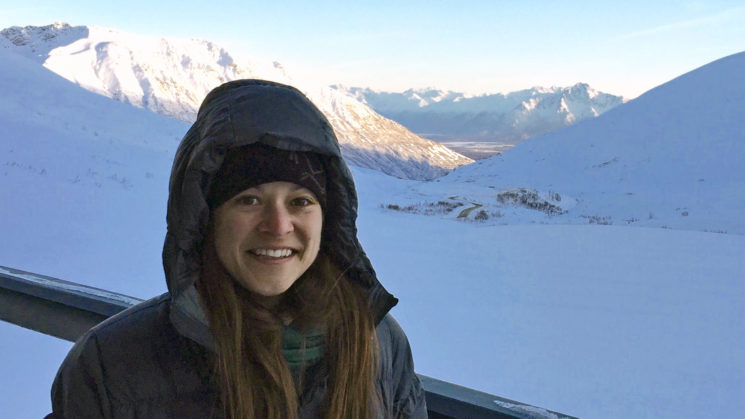
Elizabeth Clark earned a doctorate in marine science and conservation from Duke University, where she focused on the dynamics of markets and political institutions in fisheries governance. While pursuing her master’s degree in environmental technology and ecological management from Imperial College in London, Clark also served as a marine policy research assistant for the Zoological Society of London. She has an undergraduate degree in biology from Washington University in St. Louis.
While studying for her Ph.D., Clark worked on a grant-funded team research project with the National Socio-Environmental Synthesis Center, through which natural and social scientists collaborate to tackle complex environmental problems. Previously, she had served as a sustainable fisheries analyst with MRAG Americas, a consulting company that advises clients on the sustainable use of aquatic resources.
How would you describe your expected overall focus and initial responsibilities?
As a congressional affairs fellow in NOAA’s Office of Legislative and Intergovernmental Affairs, I am part of the team that acts as the official liaison between NOAA and Congress. Our office is charged with communicating the goals and directives of NOAA’s various line offices to the Hill, keeping NOAA leadership informed of congressional developments, and working cooperatively on various pieces of legislation. One of my key initial responsibilities is to contribute to the FY19 budget rollout, and throughout the year I will be the point person for cross-cutting NOAA working groups on regional collaboration, tribal engagement, Arctic action, NOAA in the Caribbean, and education. I am also covering the office of Oceanic and Atmospheric Research (OAR), which includes the National Sea Grant Office.
In my first few weeks, I attended a tour of a NOAA satellite operations facility with a member of Congress, as well as several meetings between NOAA leadership and congressional staff in the House and Senate. I also traveled to Anchorage, Alaska, for the annual meeting of Regional Collaboration Team leads from around the country. More recently, I have staffed NOAA’s acting administrator at three meetings with members of Congress, organized the NOAA briefing to update Congress on implementation of the Weather Act of 2017, and staffed the NOAA witness to a hearing on Arctic Maritime Transportation.
What appeals to you about this position?
One of the most exciting things about the role is that it puts me right at the nexus between legislative and executive branches, providing firsthand experience of how the branches engage with each other on ocean policy. The position involves broad geographical and institutional exposure to NOAA as an agency, from the core senior leadership in D.C. out across all the regional teams and line offices that deal with fisheries to weather to satellites.
I’ll be able to stay engaged on policy issues I’ve worked on before and will explore a wide range of new topics. For instance, by covering the OAR line office, I’m learning about the incredible original research that NOAA carries out from the deep sea to outer space. This position is also providing invaluable exposure to the Congress and its legislative processes. After coming from a Ph.D. experience, which is highly focused and individual, I’m excited about the broad, collaborative and fast-paced work environment in NOAA’s Legislative Affairs office.
How did your education and other experiences prepare you for this role?
My Ph.D. research focused on policy-making processes and the incentives for political cooperation in the management of natural resources (like marine fisheries). This role is giving me the chance to participate in the very governance that I studied!
Before going back to grad school, I worked for a consulting group that did fisheries sustainability analyses for nonprofits, industry groups and government bodies like NOAA. I also worked for a nonprofit providing scientific advice to legislators from around the world — including U.S. members of Congress — on international marine conservation policy. These experiences, along with my academic research, gave me a foundation in ocean policy from a wide range of perspectives outside the government. I’m excited to apply my expertise, contribute to the policymaking process and continue to grow professionally through the fellowship.